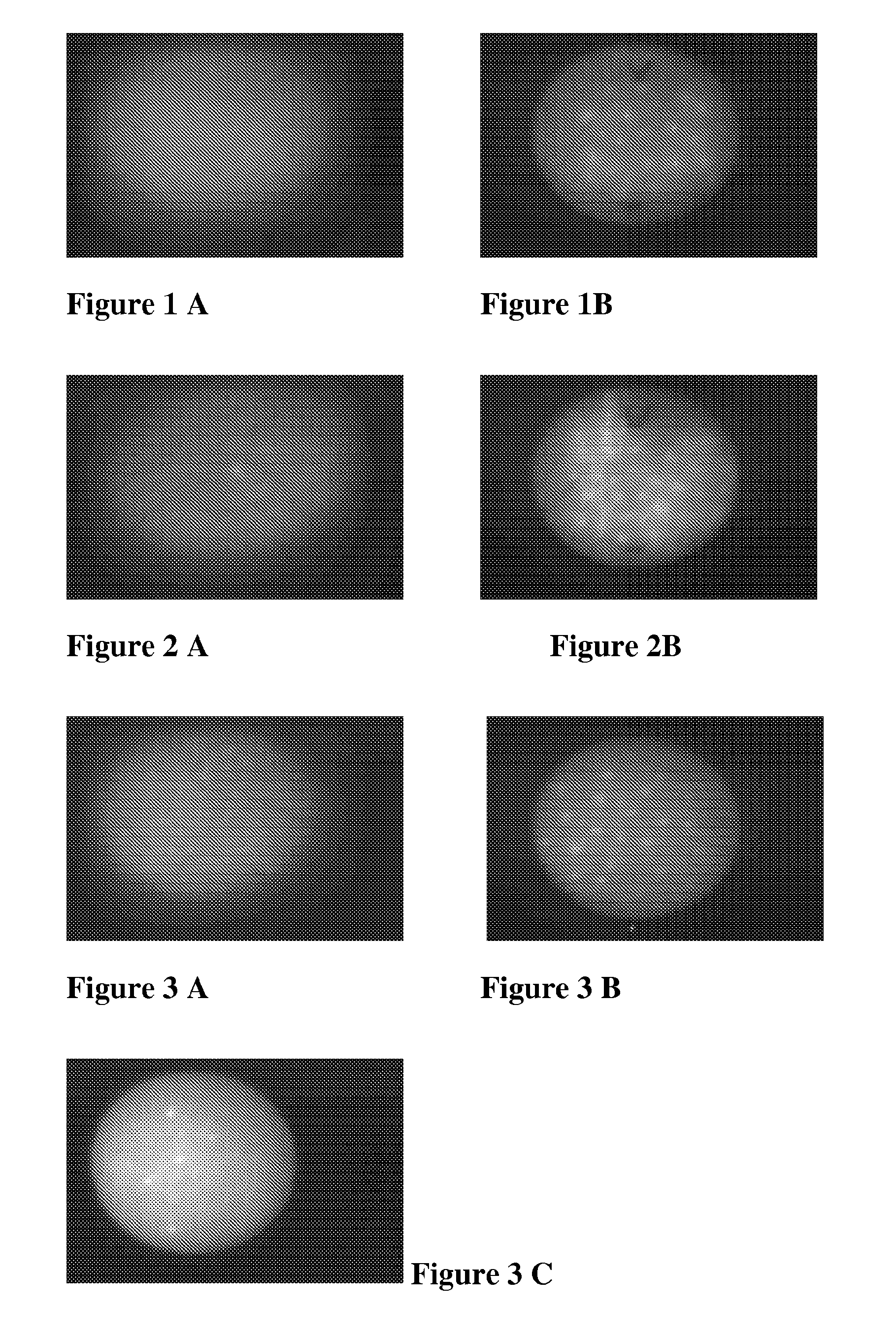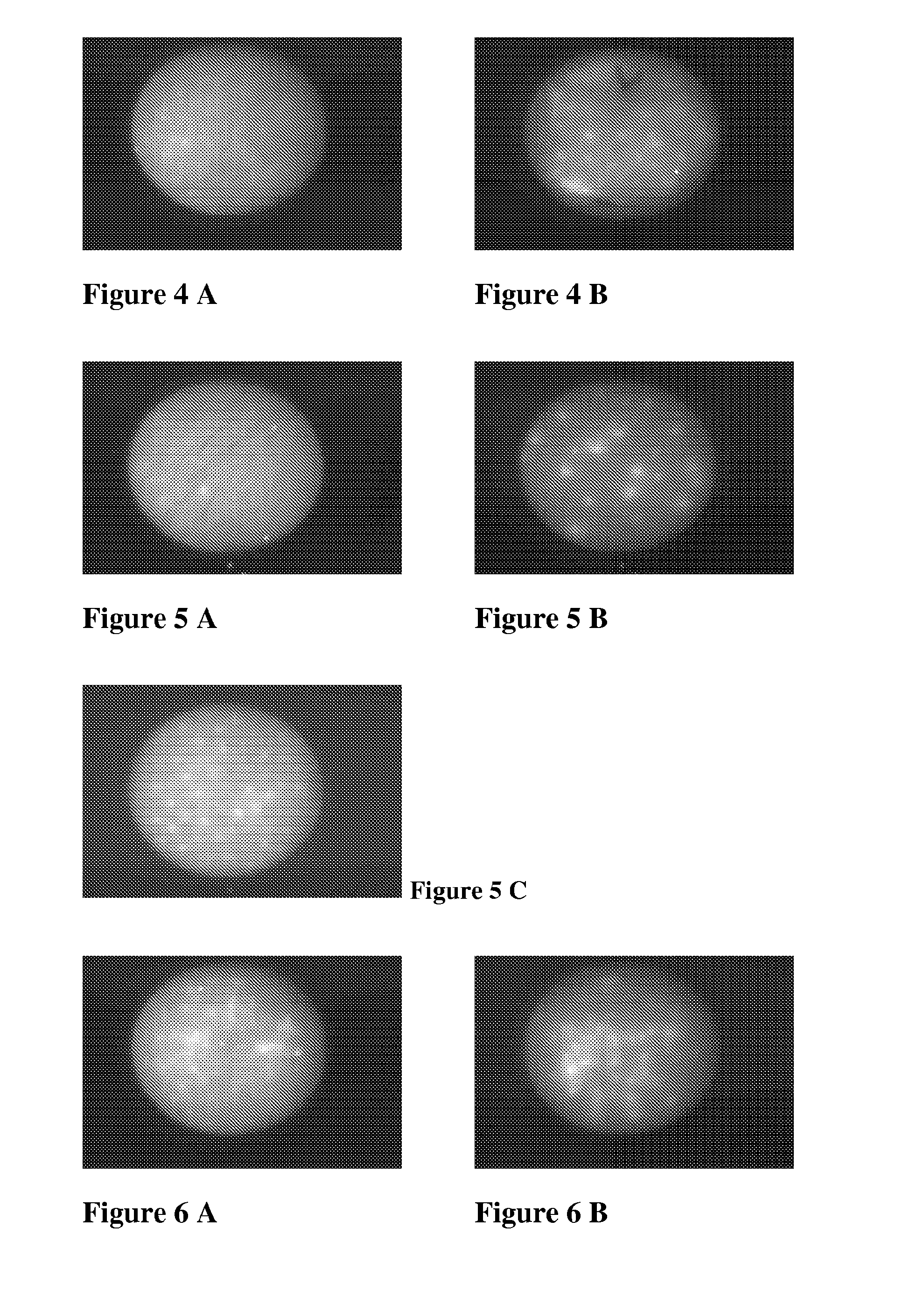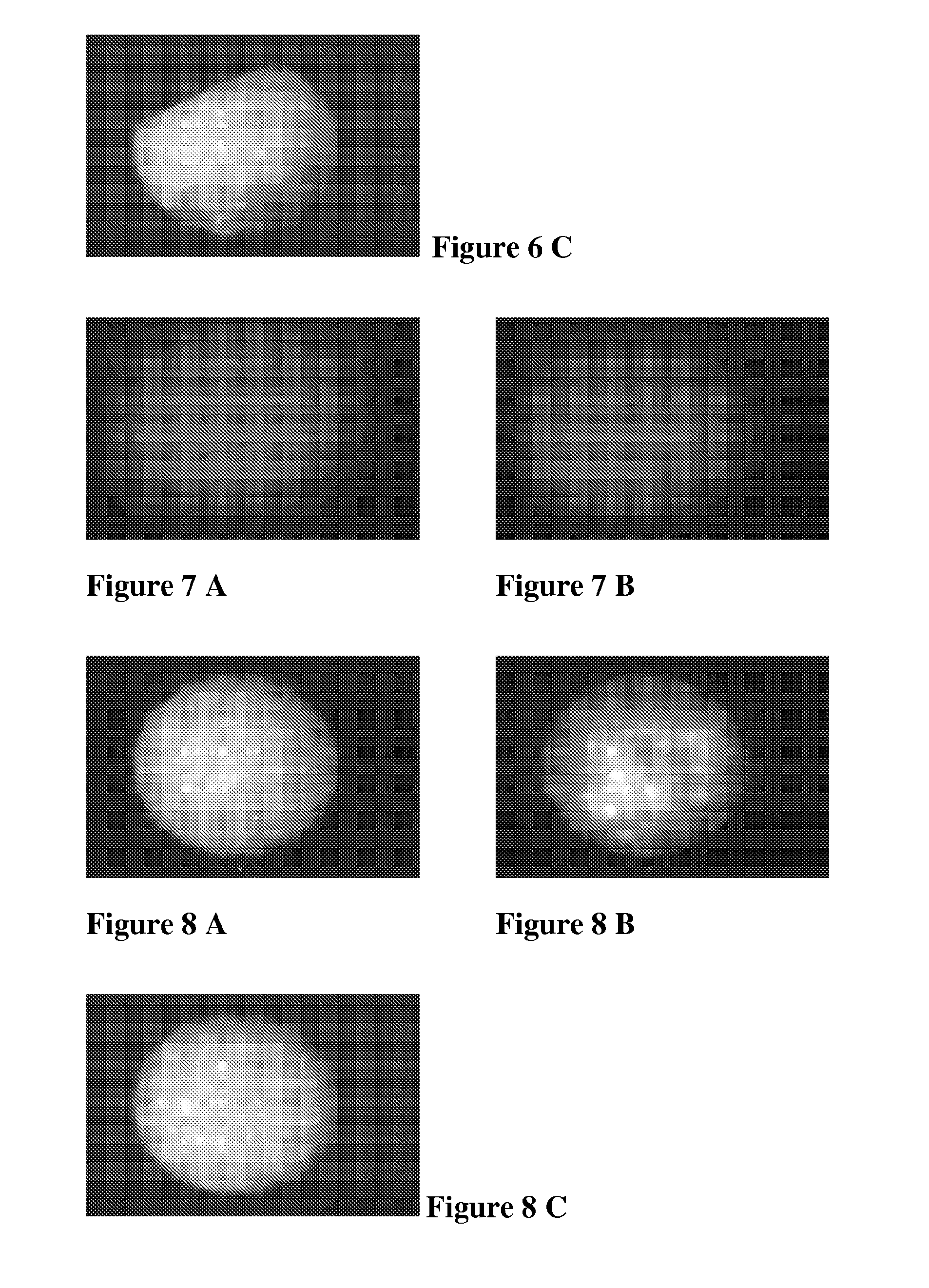Novel compounds useful in therapeutic and cosmetic methods
a technology of cosmetics and compounds, applied in the field of new compounds, can solve the problems of toxic species, affecting the safety of cosmetics, and affecting the safety of cosmetics, and achieve the effects of reducing the risk of cancer, and reducing the safety of cosmetics
- Summary
- Abstract
- Description
- Claims
- Application Information
AI Technical Summary
Benefits of technology
Problems solved by technology
Method used
Image
Examples
examples
[0127]In the present examples, percentages are by weight unless otherwise indicated.
examples 1-12
Synthesis of Compounds According to the Invention
[0128]All raw materials for conducting the synthesis Examples 1-11 were obtained from Sigma-Aldrich Chemie, 9471 Buchs, Switzerland.
1. Phenylalanine-ALA-amide
[0129]Aminolevulinc acid is dissolved in methanol with dibromide. Then, the product is purified and dissolved in methanol under hydrogene flow. Palladium is used as a catalyser, then Boc2O is added. The addition of hexafluorobenzene allows obtaining a pentafluorobenzene ester which is easily substituted by Phenyalanine The Boc protected Phenylanine-ALA-ester derivative is deprotected in acidic conditions and the final product (compound 1) is purified by chromatography.
2. Tyrosine-ALA-ester
[0130]Tyrosin is dissolved in ethanol and esterified with a ter-butyl group then re-crystalyzed and dissolved in dichloromethane. Boc2O is added to achieve protection of the amine group. ALA protected by a Boc function on its amine group is left for reacting with DCC and DMAP with the protected ...
examples 13-21
Formulations for Topical Application
[0141]Various formulations for topical administration of compounds 1-12 were produced based on the indications given below, in which percentages are percent by weight. Once prepared according to the quantities indicated below, all formulations were supplemented with a respective compound of the present invention. In general, 20 parts by weight of purified ingredient were added per 100 parts by weight of final formulation.
13. Cold Cream (Oil in Water Emulsion)
[0142]Cetylic alcohol 21%, liquid parrafin 19%, Span® 80 0.5%, Tween® 80 4.5%, water 55%.
14. Ointment with Lanoline
[0143]Adeps lanae (Lanoline) 37.5%, Vaselinum album (vaseline) 62.5%
15. Hydrogel
[0144]Carboxymethylcellulosum Na 450cps (Carbopol) 3.5%, water 96.5%.
16. Anionic Hydrophilic Cream (Oil in Water Emulsion)
[0145]Cetylanum 5%, Arachidis oleum raffinatum (purified peanut oil) 30%, Propylene glycol 20%, water 45%.
17. Non Ionic Hydrophilic Cream (Oil in Water Emulsion)
[0146]Tween® 80 5%, ...
PUM
| Property | Measurement | Unit |
|---|---|---|
| diameter | aaaaa | aaaaa |
| wt. % | aaaaa | aaaaa |
| exposure time | aaaaa | aaaaa |
Abstract
Description
Claims
Application Information
 Login to View More
Login to View More - R&D
- Intellectual Property
- Life Sciences
- Materials
- Tech Scout
- Unparalleled Data Quality
- Higher Quality Content
- 60% Fewer Hallucinations
Browse by: Latest US Patents, China's latest patents, Technical Efficacy Thesaurus, Application Domain, Technology Topic, Popular Technical Reports.
© 2025 PatSnap. All rights reserved.Legal|Privacy policy|Modern Slavery Act Transparency Statement|Sitemap|About US| Contact US: help@patsnap.com



